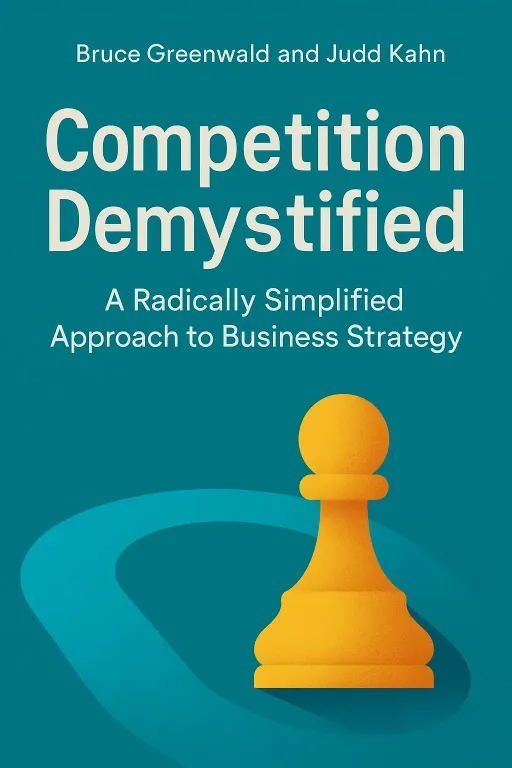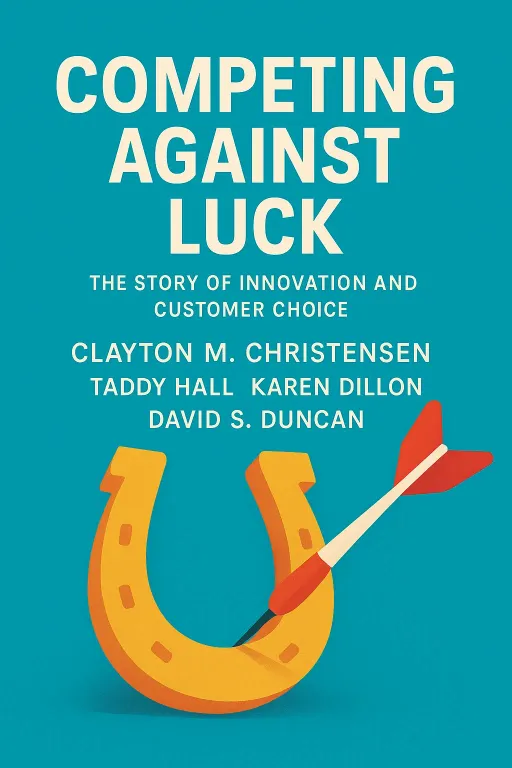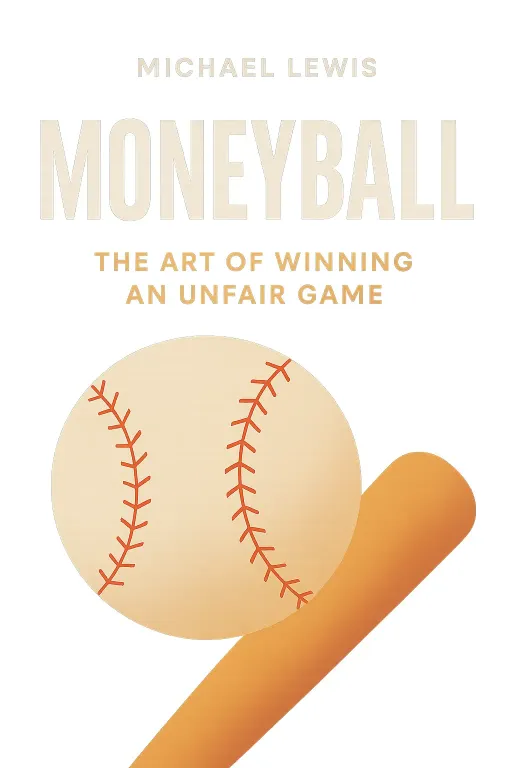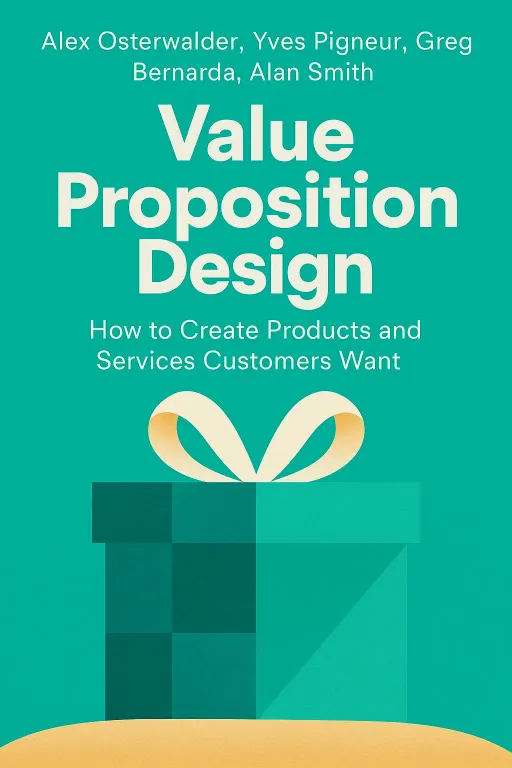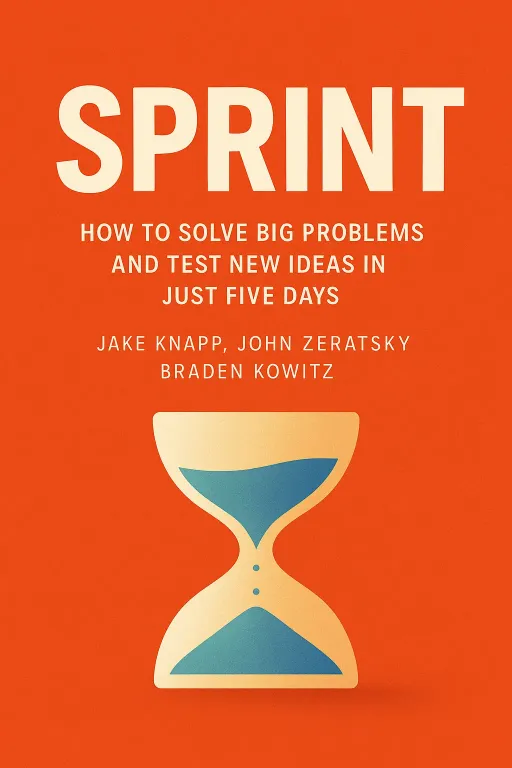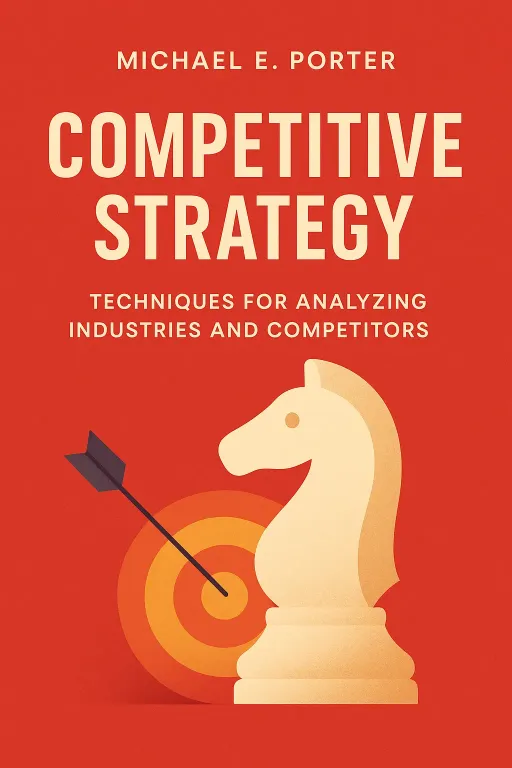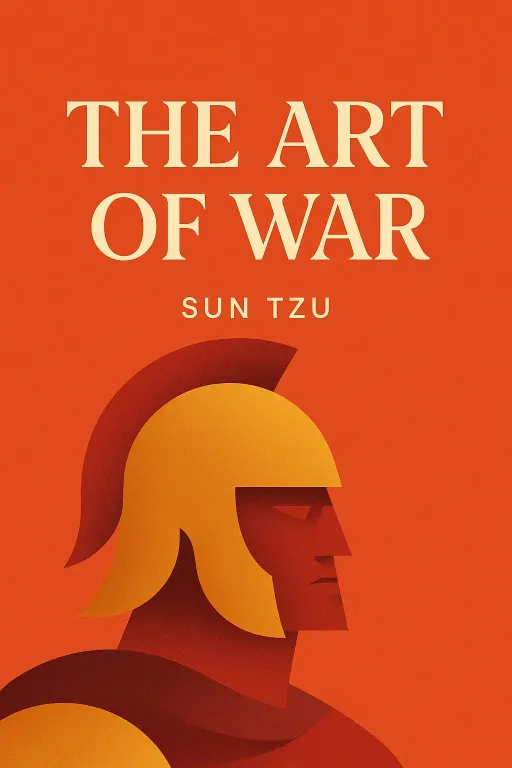
The Growth Warrior: Applying Sun Tzu's 'Art of War' to Modern Business
13 minGolden Hook & Introduction
SECTION
Nova: What if the most potent strategies for growing a 21st-century tech company weren't forged in Silicon Valley, but on the battlefields of ancient China? It sounds counterintuitive, but Sun Tzu's 2,500-year-old classic, The Art of War, argues that supreme excellence is breaking the enemy's resistance without fighting. This isn't about conflict; it's about profound strategy. And today, we're incredibly lucky to have Wang Shiyue, Head of Growth at Aibrary and a Harvard MBA, to help us translate these ancient principles into modern growth tactics.
wangshiyue.ruc: Nova, thank you so much for having me. I'm thrilled. It's a topic I find endlessly fascinating. We spend so much time reading the latest business books, but sometimes the most durable insights come from these foundational texts. The patterns of human competition and strategy, it turns out, don't change as much as we think.
Nova: I completely agree. And it feels like the business world often defaults to this very aggressive, "crush the competition" language. But Sun Tzu seems to offer a more elegant, more intellectual path. So let's jump right into that first, and arguably most famous, idea. He writes, "to fight and conquer in all your battles is not supreme excellence; supreme excellence consists in breaking the enemy's resistance without fighting." Shiyue, as a Head of Growth, what does that even mean in a business context? It sounds almost like a paradox.
wangshiyue.ruc: It does, but it's the core of modern strategy, I think. To me, "winning without fighting" means avoiding the zero-sum game. The classic example is a price war. Two companies selling a similar product just keep undercutting each other. They're "fighting," sure, but they're both bleeding margin, commoditizing their product, and destroying market value. Nobody really wins. The "bloodless victory" is to do something else entirely. It's about creating such a unique value proposition, or even an entirely new category, that your competitors' strengths become irrelevant. You're not fighting them on their terms; you're creating a new game where you're the only one with the rulebook.
Nova: I love that framing—creating a new game. It's so proactive. And Sun Tzu actually gives us a framework for this. He lays it out like a ladder of strategic options. He says the highest form of generalship is to "balk the enemy's plans"—to disrupt them before they can even get started. The next best is to "prevent the junction of the enemy's forces," so they can't unite against you. Attacking their army in the field is only the third-best option. And the absolute worst policy of all, he says, is to "besiege walled cities."
wangshiyue.ruc: That hierarchy is brilliant, and it maps perfectly to business. "Besieging a walled city"… that’s a startup trying to out-spend Google on search advertising or a new CPG brand trying to buy more shelf space than Coca-Cola. It's a war of attrition against a fortified incumbent that you will almost certainly lose. It's slow, it's incredibly expensive, and your chances of success are minimal. You're attacking their greatest strength head-on.
Nova: Exactly. So what's the alternative? What does it look like to "balk their plans"?
wangshiyue.ruc: I think the classic example is what Netflix did to Blockbuster. Netflix didn't try to build more physical stores or get better real estate. That would have been besieging Blockbuster's walled city. Instead, they "balked their plans" by changing the entire model of distribution. They went to a subscription, mail-order model, and then streaming. Suddenly, Blockbuster's primary strength—its thousands of physical locations—became its greatest liability. They were expensive, inefficient, and tied to an outdated model of late fees, which customers hated. Netflix won by making the old battlefield completely obsolete. They didn't fight Blockbuster's army; they just made it irrelevant.
Nova: That is such a powerful illustration. The strength becomes the weakness. So for a company like Aibrary, where you lead growth, how do you think about this? Are you constantly looking for ways to avoid a direct, feature-for-feature fight with competitors?
wangshiyue.ruc: Absolutely. It's the central question. For us, it might mean focusing on a very specific niche of users that larger players ignore. Or it could be about building a community around our product that's so strong and engaged that it becomes a defensive moat. A competitor can copy a feature in a week, but they can't copy a thousand true fans who love your brand. That's a form of "winning without fighting." You're competing on a dimension—community, brand, love—that is much harder to assail than just features or price.
Deep Dive into Core Topic 2
SECTION
Nova: That idea of competing on a different dimension is the perfect transition to our second point. Because achieving that Netflix-style victory wasn't just a clever idea that came out of nowhere. It was based on a deep understanding of customer frustration and market dynamics. Which brings us perfectly to our second core topic: the intelligence edge. Sun Tzu famously states, "All warfare is based on deception." Now, that sounds a bit sinister, but he immediately qualifies it with another, more important quote: "If you know the enemy and know yourself, you need not fear the result of a hundred battles."
wangshiyue.ruc: Right. The "deception" part gets all the attention, but it's the "knowledge" part that powers it. Deception without knowledge is just reckless gambling.
Nova: Precisely. And to make this real, let's look at one of the most brilliant examples of this in military history: the Battle of Cannae. It's 216 BC. The Carthaginian general, Hannibal, is in Italy, and he's facing a massive Roman army, almost double his size. The Romans are led by two consuls, and Hannibal knows one of them, Varro, is incredibly aggressive and overconfident. He's itching for a glorious, head-on victory.
wangshiyue.ruc: He knows his enemy's psychology.
Nova: Perfectly. So Hannibal uses this knowledge to set a trap. He arranges his army on the battlefield in a very unusual formation: a shallow crescent, with his weakest and least reliable troops bulging out in the center, and his elite, veteran cavalry hidden on the flanks. When the battle begins, the massive Roman legions, just as Hannibal predicted, charge straight at the weak center. They see it as the quickest path to victory.
wangshiyue.ruc: They're taking the bait.
Nova: Hook, line, and sinker. And as the Romans push forward, Hannibal's center does something extraordinary: it performs a controlled, deliberate retreat. The crescent inverts. The Romans, smelling blood, surge deeper and deeper into the pocket, their formations getting more and more compressed. Just as they're about to break through, Hannibal gives the signal. His elite cavalry, which had already defeated the smaller Roman cavalry on the wings, sweeps around and attacks the Roman infantry from the rear. In a matter of minutes, the largest army Rome had ever fielded was completely encircled, trapped, and systematically annihilated. It was a catastrophic defeat for Rome, all because Hannibal used his knowledge of their arrogance to deceive them into turning their greatest strength—their massive numbers—into a fatal weakness.
wangshiyue.ruc: Wow. That's a masterclass. Hearing it laid out like that… it's pure strategy. And it translates so directly. In business, "deception" isn't about telling lies. It's about strategic unpredictability. It's about letting your competitors think you're focused on one thing, while your real breakthrough is happening somewhere else. It's launching a feature the market didn't expect, or using a marketing channel your competitors have written off as ineffective.
Nova: And what about the "spies" Sun Tzu talks about? He dedicates a whole chapter to them, saying they are a "most important element" because on them "depends an army's ability to move." Who are the spies for a Head of Growth?
wangshiyue.ruc: They're everywhere! Our "spies" are our modern intelligence-gathering tools. It's the quantitative data from Google Analytics and our product usage dashboards. It's the qualitative data from customer interviews and surveys, where we try to understand their deepest needs and frustrations. It's competitive analysis software like SEMrush or Similarweb, which tell us where our competitors are getting their traffic. It's even reading their customer reviews to see where their users are unhappy. We are constantly gathering intelligence to understand the "enemy"—our competition—and, more importantly, the "terrain"—which is our customers and the market itself.
Nova: So as a Head of Growth, are you constantly trying to create your own 'Cannae' moments on a smaller scale? Maybe luring competitors into focusing on one metric while you're actually winning on another, more important one?
wangshiyue.ruc: That's a great way to put it. A perfect example is in performance marketing. You might be testing ten different ad creatives and audiences in the background. Nine of them fail. But one of them is a massive success. For a brief period, you have knowledge that no one else has. You know this specific combination works. That's your 'intelligence edge.' The 'Cannae moment' is when you pour your budget into that winning combination and scale it rapidly, capturing a huge chunk of the market before your competitors even realize what's happening. By the time they copy you, you're already on to testing the next thing. You're creating a series of small, unpredictable wins based on superior, privately-held information.
Nova: So the deception is in the quiet testing, and the victory is in the rapid, decisive scaling.
wangshiyue.ruc: Exactly. You appear inactive while you're gathering forces, and then you attack where they are unprepared. It's pure Sun Tzu.
Synthesis & Takeaways
SECTION
Nova: This is all so incredibly insightful. It feels like we could talk for hours. But to bring it all together, it seems the two pillars of Sun Tzu's strategy for us today are, first, redefine the game so you don't have to fight a costly, head-on war.
wangshiyue.ruc: Win without fighting.
Nova: And second, use superior intelligence—about your market, your customers, and your competition—to create strategic surprises and decisive, unpredictable moves.
wangshiyue.ruc: Exactly. It's about being smarter, not just stronger or richer. It's about preparation and insight, not just execution and budget. Sun Tzu has this other quote that I love: "The general who wins a battle makes many calculations in his temple ere the battle is fought." The war is won in that planning phase, in the "temple" of your strategy sessions and your data analysis, before you ever write a line of code or spend a dollar on ads.
Nova: That's the perfect summary. It's about winning before you even begin. Shiyue, this has been an absolutely fantastic conversation. Thank you so much for lending us your incredible insight.
wangshiyue.ruc: The pleasure was all mine, Nova. This was so much fun.
Nova: So for everyone listening, especially those in leadership or growth roles, here's the takeaway question from Shiyue and me, inspired by Sun Tzu: What is the one "walled city" your organization is currently trying to besiege? What is that costly, head-on battle you're fighting? And what would it look like to, instead, "balk the enemy's plans" and win without fighting at all? It's a tough question, but it might just be the most important one you ask all year.
